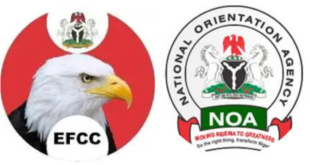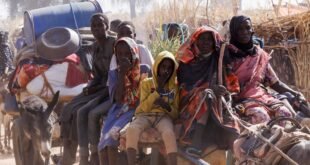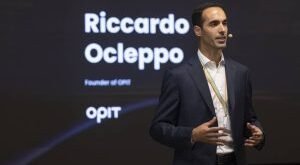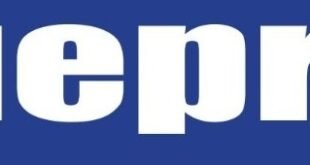The Bureau of Public Procurement (BPP) plays a critical role in ensuring transparency and accountability in Nigeria’s public procurement processes. In this interview monitored on AIT’s “Focus Nigeria”, Dr. Adebowale A. Adedokun, the Director-General of the BPP, shares his vision for transforming Nigeria’s public procurement system and highlights the agency’s efforts to promote transparency, accountability, and efficiency in the procurement process. Excerpts:
Que: You have been there since the inception of the BPP. How did the Obasanjo administration initiate reforms to address procurement challenges through the Budget Monitoring and Price Intelligence Unit (BMIPU)?
Ans: Nigeria is a developing country within the global space, and procurement processes are critical to addressing development, human capital, technology, security, poverty reduction, support for small and medium-scale enterprises, and care for groups with disabilities and women.
Whatever we see happening elsewhere in terms of development, stability, and preventing abuse of government resources is tied to one global principle: the use of procurement processes. Every country that has grown, whether in Africa or developed continents, has a clearly defi procurement system.
When President Obasanjo came in before 2000, he noticed a decline since his time as military head of state, when Nigeria had clear development in roads, airspace, and healthcare. Foreigners came for medical treatments, and universities attracted foreign lecturers and students due to quality facilities.
The World Bank identified the lack of a proper institutionalised procurement system as the cause. The BMIPU was a tool to study and structure processes, leading to the Public Procurement Act 2007. This replaced outdated laws like the Treasury Circular of 1958 and public service rules, which lacked a legal framework to hold public and private sectors accountable.
This institutionalisation also contributed to Nigeria’s debt forgiveness. Issues like contract splitting and awarding contracts to who is who without planning have been significantly addressed.
Que: To what extent have budget monitoring and the Bureau of Public Procurement ensured compliance with procurement processes since inception?
Ans: I’ve travelled consistently globally, and Nigeria has gone very high in terms of transparency. In some countries, contract documents are signed at the office of the chief of staff to the president, but in Nigeria, the president does not micromanage procurement.
The 2007 Act sent signals that it’s no longer business as usual. Between 2007 and now, we’ve trained over 8,000 public servants across federal, state, and local governments to understand procurement processes. But some years back, procurement became transactional, with officers bypassing proper stages. They were just giving contracts without following processes.
With our coming on board, we are changing the dynamics, and fighting against the tide. For 2024, we expect all MDAs to show their level of performance, and for 2025, they must demonstrate results before we consider what they want to do in 2026.
Strengthening Accountability in Procurement
Que: Why did the 8,000 trained procurement officers fail to maintain system integrity, and how are you addressing concerns about unconfirmed cadre members?
Ans: Some years back, procurement became transactional, so officers were no longer going through the stages of procurement processes. They were just doing: “you want this? “Give it to this”. Imagine giving a child a flawed system 10 years ago. They grow thinking it’s right. We are now going back to the rudimentary, and fighting resistance.
For new cadre members, joining the procurement cadre is like being recruited into a bank. When commercial banks recruit, they send you to training to understand the culture, ethics, and processes unique to that bank. It’s the same in public service. As a former director of training in BPP and now DG, I ensure new officers go through our processes. We call it foundational beginning, followed by continuous capacity development. Passing the exam for conversion is not enough; it’s just the start.
Throughout your career till you retire, you must continuously be training and acquiring certification. For instance, an IT procurement guru must brush up knowledge, as Microsoft tools today differ from 10 years ago. The head of service has adopted a performance management system, which we call PMI (Performance Management Index), to ensure officers show empirical contributions.
Que: How are procurement officers held accountable for poor project outcomes, such as failing infrastructure?
Ans: Procurement is a profession requiring academic understanding, soft skills, and technical knowledge. Officers must show contributions through a procurement officer management system. It’s no longer business as usual. If you don’t, under my watch, you must show me that you qualify. You have to show us empirically. On your own, you have to show us what you have done between this grade level and the next in terms of knowledge, not to see people going to offices in the morning, doing nothing, and expecting government to pay at the end of the month. What’s your contribution towards making sure the roads are good? What’s your contribution towards making sure electricity works? As a procurement officer, what’s your duty towards ensuring I can walk straight to a medical facility and I’m attended to? What’s your position in terms of the quality of materials being supplied to the sites? If a road is spoilt, I ask, what was your contribution towards that bad road? If a contract was awarded for a road to last 10 years and it’s destroyed in five, I question the procurement person.
We are auditing legacy projects like Lagos-Calabar, Badagry-Sokoto-Trans-Sahara, and Abuja-Kaduna roads. I am going with civil society and professional bodies to verify claims, like the Ministry of Works saying they’ve done 30 kilometres. As the regulatory body, I report to the President and Nigerians independently. Unlike before, where audits happened three years later, we now audit during projects. My reports confirm whether claims are true, silencing debates about: “it is, it is not.”
Enhancing Transparency through Audits and Collaboration
Que: Can you describe the procurement audit process and its impact on ensuring compliance?
Ans: The process is simple. I don’t need MDA consent. I write a letter to notify them I’m coming. I’ve sent out teams to audit all government agencies, scrutinising processes and contract awards, even after full payment. I’ve done audits and found inflated contracts, asking contractors to refund the government, and they have done that. I have a record within six months. This is a different terrain. President cannot be everywhere; so it’s my duty to report to him. All government agencies must publish contracts monthly on their websites and the BPP website. It’s not an option; it’s an instruction. If I can audit 10% of procurement processes nationwide, Nigeria will change.
Que: How are you ensuring MDAs comply with publishing contract awards transparently?
Ans: We’ve mandated all government agencies to publish contract awards monthly on their websites and the BPP website, supported by an SGF circular with clear timelines. We’re setting up teams with retired procurement directors of good ethics and 33 professional bodies to audit independently. For housing, we involve builders and architects; for IT, the Nigerian Computer Society. If you inspect a house or office complex, you have to show me with your professional seal that it met all standards. If it fails, I hold the professional accountable. We harness expert skills to verify standards. I’m calling on civil society and professional bodies to join this task, ensuring impartiality so they don’t say I’m a government official. We’re putting all of them together, asking them to go out and audit and report back.
Que: What actions are taken when procurement infractions are identified, and how do you collaborate with other agencies?
Ans: Reports go to ICPC and EFCC for immediate investigation, with preliminary reports already received. I can recommend sanctions to the President, like dismissal or transferring procurement functions to another agency. We’ve signed an MoU with ICPC and EFCC and are working on others to jointly work together. We also collaborate with the Office of the Special Adviser on Service Delivery and policy coordination, sharing information to monitor contracts. Every inflated contract causes Nigerian suffering and builds insecurity. That’s the pain. We act proactively, not waiting for project completion. For every contract that is inflated, a Nigerian is suffering.
Tackling Corruption and Ensuring Fair Processes
Que: How does the BPP address contract inflation and splitting, major sources of public sector corruption?
Ans: The issue of procurement being a pipe for corruption is not peculiar to Nigeria. What’s peculiar is what we’re doing now. I hold my colleagues accountable, not political heads. Political leaders have visions, but as technocrats, we help them stay within the law. I’ve interacted with National Assembly members and the judiciary, and they say, “DG, help us ensure we don’t violate rules.” They recognise corruption as a challenge, which is a success. When you recognise the problem, you have solved it.
We enforce open competitive bidding to minimise costs, as contractors know high prices risk losing bids. The norm of restricted or direct procurement became the exception in the past, but we’re changing that. The Federal Tenders Journal shows a paradigm shift, with more advertisements now. Ministers and DGs call for clarification, and my doors are open 24 hours. Bid openings must be virtual with Zoom links for transparency.
With new thresholds, MDAs have more power to start and end processes without delays, reducing turnaround time. When you give people freedom to operate, they realise you have another thing to checkmate them.
Que: How do new thresholds and timelines help reduce contract inflation and improve efficiency?
Ans: New thresholds (N5 billion for MDAs, N10 billion for Works) reduce turnaround time, and requests for no objection are processed in 20 days, not months. We require proof of funds and strict timelines, reducing uncertainty that inflates costs. Contractors build delays into pricing, but we’re changing that by asking MDAs to show capacity without government funds.
The procurement process starts with planning. Where is the plan? Has it been approved? It stems from the budget. Mobilisation fees are capped at 30%, though states like Rivers under Wike used 70%. States with less than 35% federal contribution have independence, but TETFUND and UBEC must comply with federal law.
We’re harmonising policies with 29 states that have procurement laws and working with ALGON and the Fiscal Responsibility Commission to develop local government frameworks post-Supreme Court judgement. They are receiving chunk of resources, so we provide technical assistance to monitor utilisation.
Que: How do you ensure payments align with procurement processes, and what is the role of the Accountant General?
Ans: I’m working with the Accountant General to ensure payments are justified. Before execution, the contractor does the job, and the ministry uploads for payments. I’m asking, before you pay, let us confirm that what was awarded was implemented. This prevents inflated payments. The Minister of Finance is addressing payment timelines to reduce uncertainties that inflate costs.
Addressing Stakeholder Concerns and Sector-Specific Reforms
Que: How do you respond to concerns about unpaid contractors and allegations of non-competitive bidding, such as the Lagos-Calabar Coastal Road?
Ans: Payment backlogs are the Minister of Finance’s responsibility, but we ensure procurement compliance. Contractors…have raised concerns about 2024 payments, and we’ll address this with the Minister of Finance.
For legacy projects like Lagos-Calabar, Badagry-Sokoto, Trans-Sahara, and Abuja-Kaduna, every government has its policy and vision. We consult with the regulatory body on the best method. There are methods like direct procurement, restricted, selective, national shopping, and request for quotation. Some projects don’t require open competition due to exigency or complexity. Some of these projects went through restricted tendering, and some were revoked for non-performance and re-awarded. Prices were benchmarked globally and found competitive.
For the coastal road, I reviewed the price and can guarantee it’s fair. Factors like exchange rates, contractor-provided security, and energy costs increase prices compared to Egypt, where states cover these. They came to the country last week and said they were shocked that the price we vetted was perhaps one of the best globally for that length of road. The Minister of Finance is prioritising project funding to reduce costs.
Que: How does the BPP engage with the oil and gas sector to ensure compliance?
Ans: Government has upstream, midstream, and other oil-related agencies, including NNPC. We’re moving from general thresholds to sector-specific policies within two years, covering oil and gas, infrastructure, IT, and education. We’ll meet key stakeholders to frame policies aligned with the President’s “Nigeria First” policy, balancing international and national competitive biddings. There will be a handshake between international and local processes to ensure fairness and efficiency in the oil and gas sector, both locally and internationally.
Que: What message do you have for procurement officers, MDA officials, and contractors to ensure compliance?
Ans: Follow the rules. If asked to do otherwise, don’t do it. BPP will be there to defend you. Do the right thing, and be ready to account. If you want to be punished for doing the right thing, we’ll stand by you. If you do otherwise, we’ll expose you. We’re providing capacity building and incentives to improve your work environment.
Over the last decade, officers haven’t been given the right tools, but I’m working on that. Accounting officers are accountable if they force subordinates to do the wrong thing, with clear evidence of correct advice. If you misadvise your superior, putting in writing a method against the law, you are culpable, and I give you the necessary sanction.
Contractors must avoid inflating contracts. I have unit rates and benchmark prices, and I will advise government not to award overpriced contracts. If MDAs refuse to open financial proposals during bids, report via our hotlines or feedback platform. Ensure bid openings are virtual and recorded.
For the first time in over a decade, we have timelines that everybody must comply with. Technical and financial evaluations must follow these timelines, and we encourage bidders and observers to report manipulations. Blow that whistle.
Que: Where do you envision Nigeria’s procurement processes in the next five years?
Ans: My dream is for Nigeria to become a continental benchmark, Africa’s Dubai, in procurement efficiency and transparency.
 JamzNG Latest News, Gist, Entertainment in Nigeria
JamzNG Latest News, Gist, Entertainment in Nigeria









